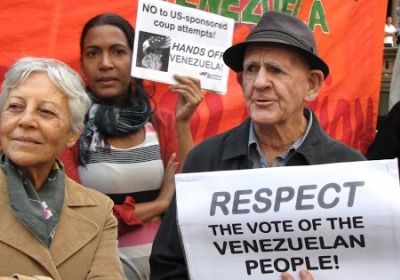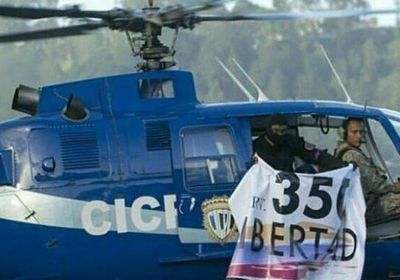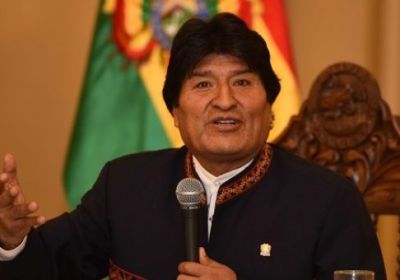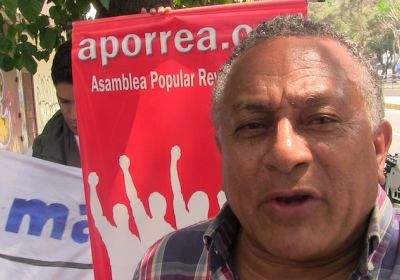-
-
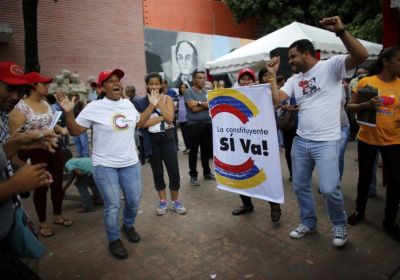
Venezuela’s government and opposition both claimed millions voted in rival symbolic elections on July 16.
Meanwhile, the US has responded to the opposition vote, with President Donald Trump describing the unofficial referendum as an example of “democracy, freedom, and rule of law” in a White House statement on July 17.
-
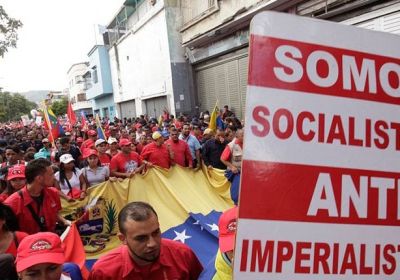
Venezuelan President Nicolas Maduro has responded to the latest threats to Venezuela's sovereignty from US President Donald Trump, in which the US leader promised "swift and strong actions" if Venezuela decides to proceed with the July 30 elections for a National Constituent Assembly.
Maduro called Trump's threats "vulgar", TeleSUR English reported. He said: "The process of the constituent assembly is already in the hands of the people who will exercise their right to vote. This is my response, the constituent assembly does not belong to me.
-
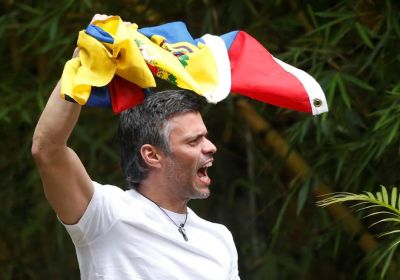
Venezuelans were taken by surprise with the announcement that opposition leader Leopoldo Lopez would serve out his jail term under house arrest. The move is an unprecedented concession that seeks to calm the waters in the lead up to the July 30 Constituent Assembly elections.
But the conflict in the country is showing it has multiple faces. On July 10, a day after the official election campaign began, a candidate was assassinated in the middle of a campaign event.
-
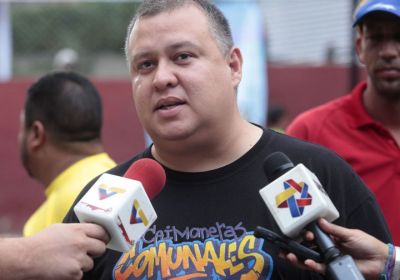
Revolutionary activist and sociologist Reinaldo Iturriza has spent many years working with popular movements in Venezuela and writing on the rise of Chavismo as a political movement of the poor. He also served as Minister for the Communes and Social Movements, and then Minister for Culture in President Nicolas Maduro’s cabinet between 2013 and 2016.
Together with activists from a range of grassroots revolutionary organisations and social movements, he is standing as a candidate for the Popular Constituent Platform in the July 30 elections for a Constituent Assembly that will seek to find a political way out of the current turmoil gripping Venezuela through the drafting of a new constitution.
-
-
-
-
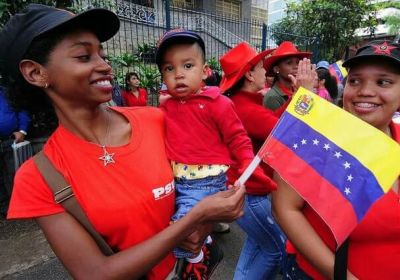
It is important to note that while the vitriolic right-wing government opposition is concentrated among the white and economically elite elements of the population, the barrios, shanty towns and rural areas that are home to the poor, Indigenous communities and the Afro-Venezuelans have not erupted into protest for the most part because they support the government. In order to understand the roots of the elite opposition's hate and racism toward Black and Indigenous government supporters, one has to understand the history of the presidency that preceded Maduro's – that of Hugo Chavez.
-
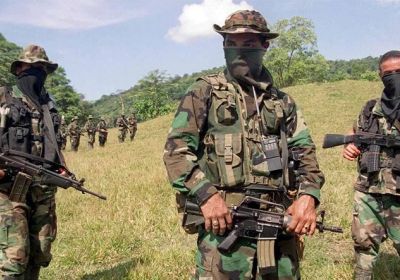
"This is a fundamental precept of paramilitarism: clear the land to ensure smooth functioning for big business deals and, in this sense, this is no different to what has happened in the past few years in this country, which is the consolidation of what I would call a militarised neoliberal model, militarised in both a state and para-state sense."
An interview with Renan Vega Cantor, a professor at Colombia’s National Pedagogical University.
-
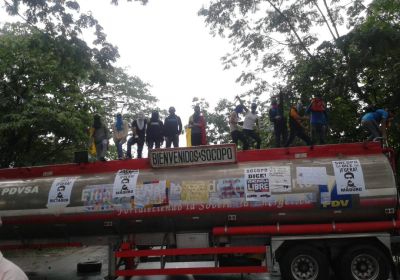
Since opposition protests began in Venezuela in early April, much of the media coverage has focused on clashes in Caracas. However, the opposition’s campaign to bring down the government of Nicolas Maduro has not been limited to the country’s capital.
Marco Teruggi reports on a recent visit to the small, but strategic town of Socopo, in the largely rural state Barinas, which has been the site of a campaign of terror and an all-out struggle for power.
-
Venezuela
Venezuela
